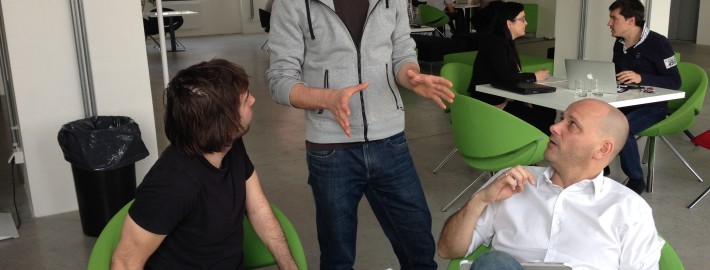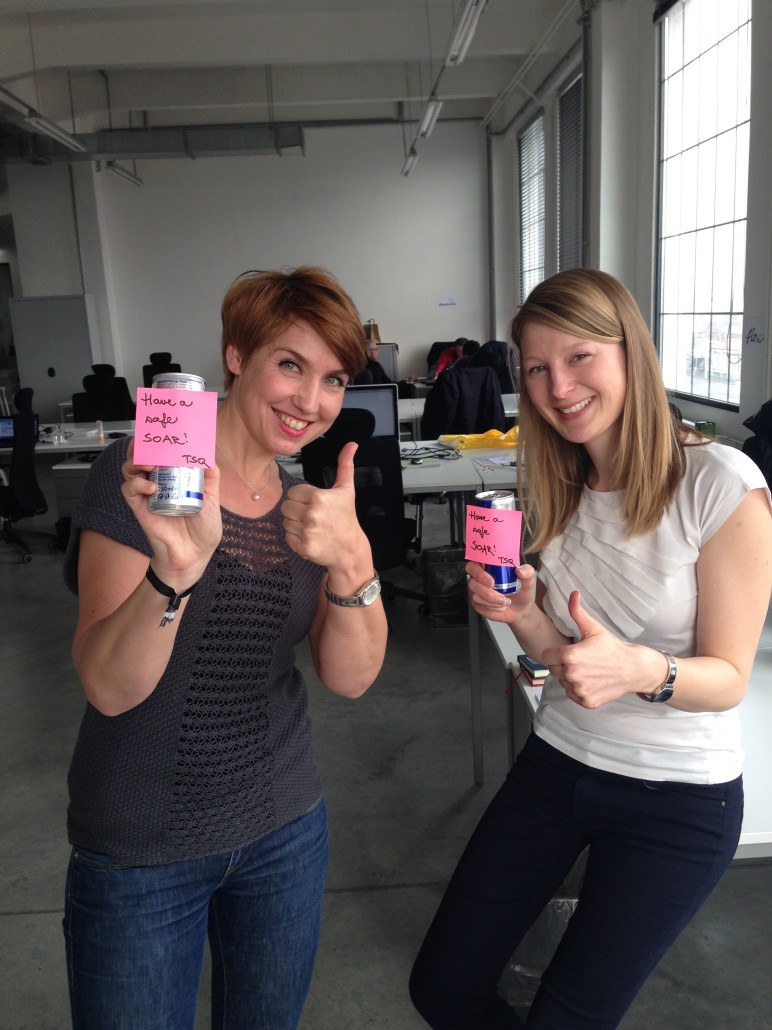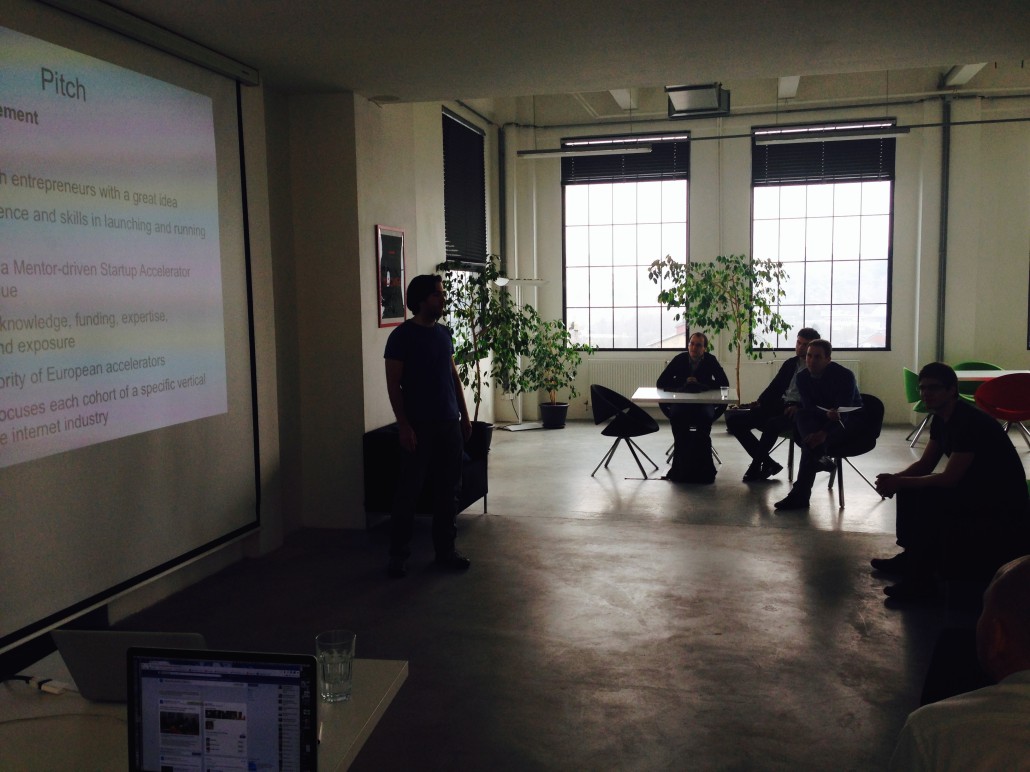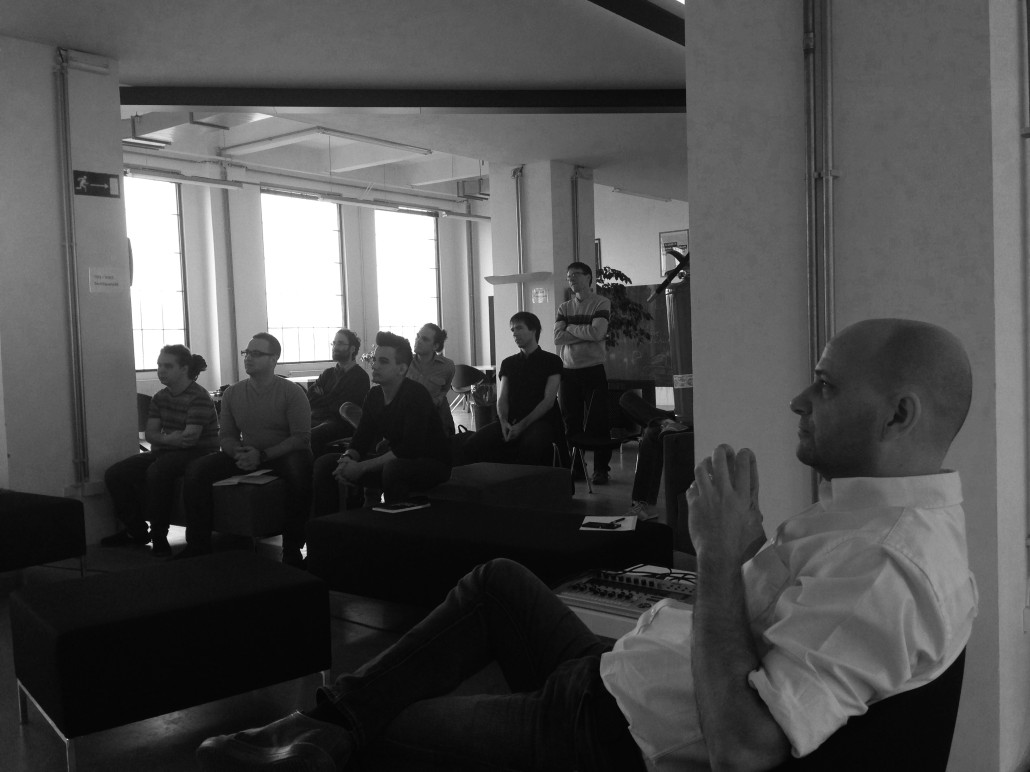The Startup Line: Week One
Last week marked the start of the StartupYard Spring 2014 accelerator round. And it’s been a hell of a week so far.
We’ve welcomed teams from all over the world, including the US, Kosovo, Kazakhstan, Romania, Serbia, and the Czech Republic. Teams range in age from as young as 19, up to 35.
The teams are working on three mobile apps, a data mining application, an educational platform, a cloud platform for small retailers, and one search engine.
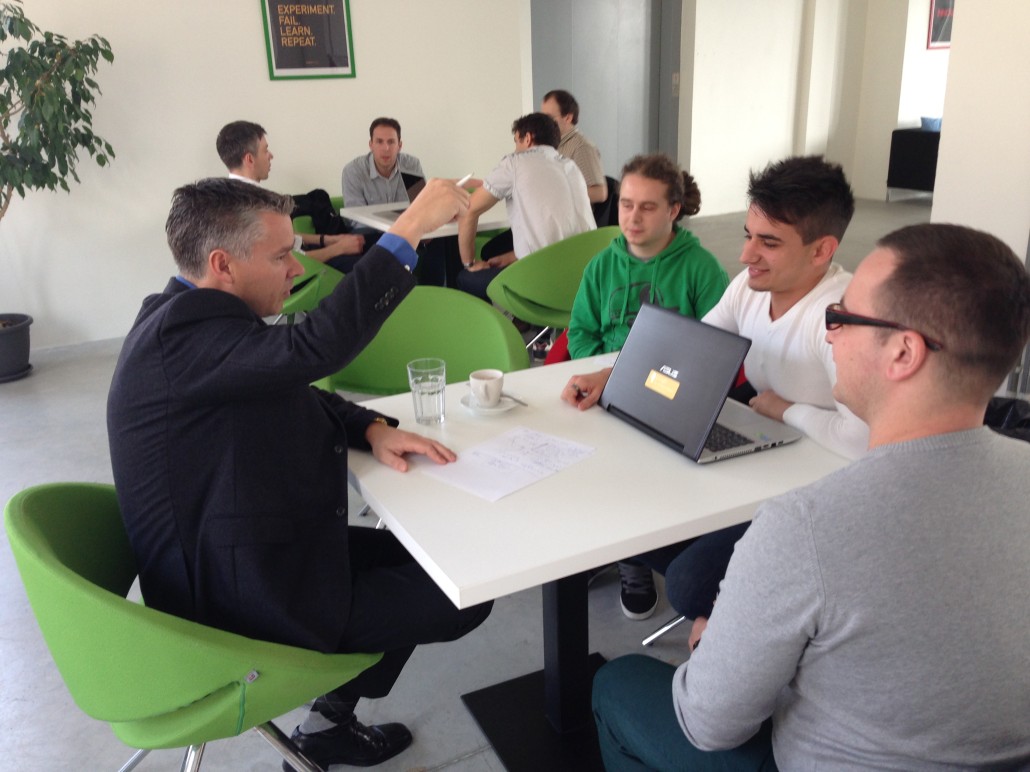
Team from Romania with mentor Ludovic Neveu.
Petra and Petra (The Petras), the managers of TechSquare, our home, marked the occasion by arranging all 23 tables and chairs in our co-working space with a nice note and a can of Red Bull. The message was clear: let’s do this. We really appreciated the gesture, if not the caffeine hangover.
The Teams are mostly staying all together in “The Big House,” a 4 story house near Techsquare, where the teams sleep or “collapse,” to use a more appropriate descriptor, after long days hacking away at StartupYard.
The Lion, The Pitch and the Positioning Statement
We’ve focused quite a bit in this first week on the pitches that Startup CEOs will be making to investors and potential partners 3 months from now. As we mentioned earlier, the teams had all written up positioning statements before they arrived. Most were pretty long, including features, technical details, business and marketing plans, etc. We, Cedric and I, worked with the teams in individual sessions to distill these initial drafts down into single paragraphs that average only 60 words.
This has given the teams an amazing amount of focus, forcing them to very carefully define the problems they are trying to solve, and the customers they are planning to target, and how they will do this in a space they share with often more established competitors. It’s also an opportunity to start practicing their pitches, which are derived from the positioning statements they’ve formulated. In meetings with mentors, the teams have given their pitches and discussed their markets and technical challenges, and the positioning statements have given mentors a helpful sense of the context in which each team is working. As a result, the teams have all received more valuable feedback.
This Friday, the 7 CEOs from each of our startups gave their pitches in front of a crowd of techsquare denizens. It was a performance they are hopefully bound to repeat many times in the next several years. And honestly, the pitches were great. We can’t wait for you to hear them.
Justifying Your Existence
A concern from some of the teams early on, was that it wasn’t possible to distill the essence of their business plans into 60 words. Where was the profit motive? This is true. But the positioning statement is not a business plan— it’s more of an outline of a company’s mission. What is your company really all about? In what way is life on Earth better with your company in it?
Startups need to be able to justify their own existence. And that goes beyond money.
Teams wanted their positioning statements to include business strategy especially- they wanted to talk about who their users would be *and* how those users would be monetized. Though monetization is a part of every successful business plan (it is essentially the definition of a good business plan), it is not necessarily an element of the company’s market position that needs to be defined early on. Plenty of companies that find massive monetization opportunities later on, launch without any proven sources of income.
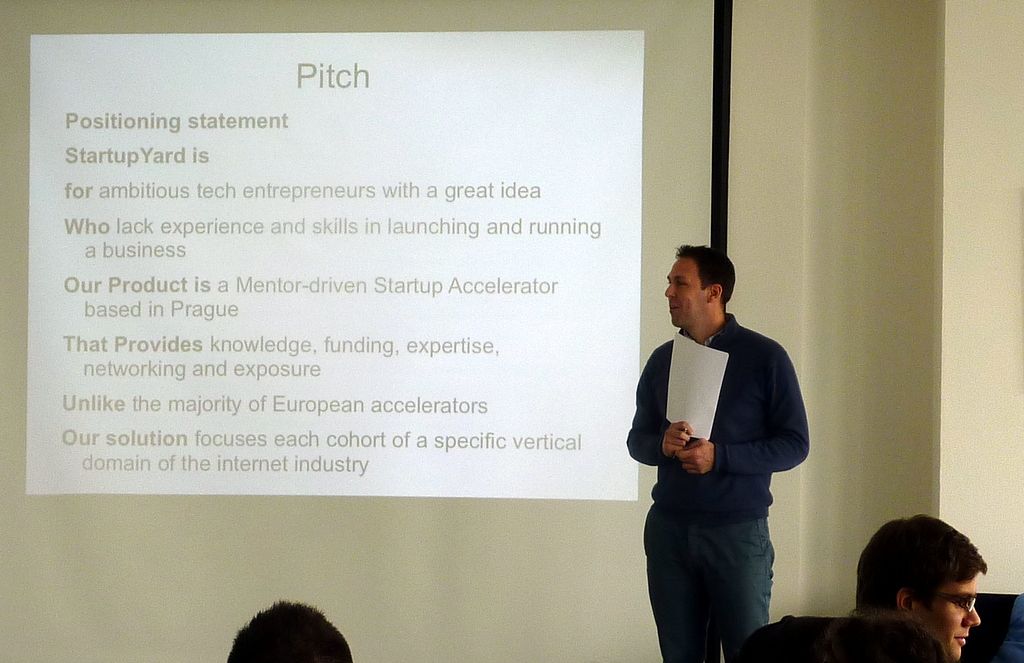
Josef Steinberger, from Pilsen, giving an early version of is pitch, with the StartupYard positioning statement as a guide.
We often struck on analogies in the real world. We asked teams to imagine a positioning statement or a pitch for a product like Facebook, or Youtube. Facebook and Youtube *make money* selling ads. But are they positioned as ad providers? No. They are positioned as places where people can connect and share the ideas and content that interests them. Advertising is the monetary benefit from a service that makes the world a better place (or at least a much more distracted place). But the essential market position of a Facebook, a Youtube, or even a Google, is providing a consumer facing experience, not a beneficial platform for ad-buyers. The platform is born out of the first condition: a great consumer facing experience means a great potential ad platform. Even for those startups in StartupYard who are essentially B2B concepts, it’s important to differentiate between what their products do for their clients and for users, and what those products do for the founders themselves. In terms of a company’s market position, the initial goal always has to be loftier than just making money.
[ssba]

